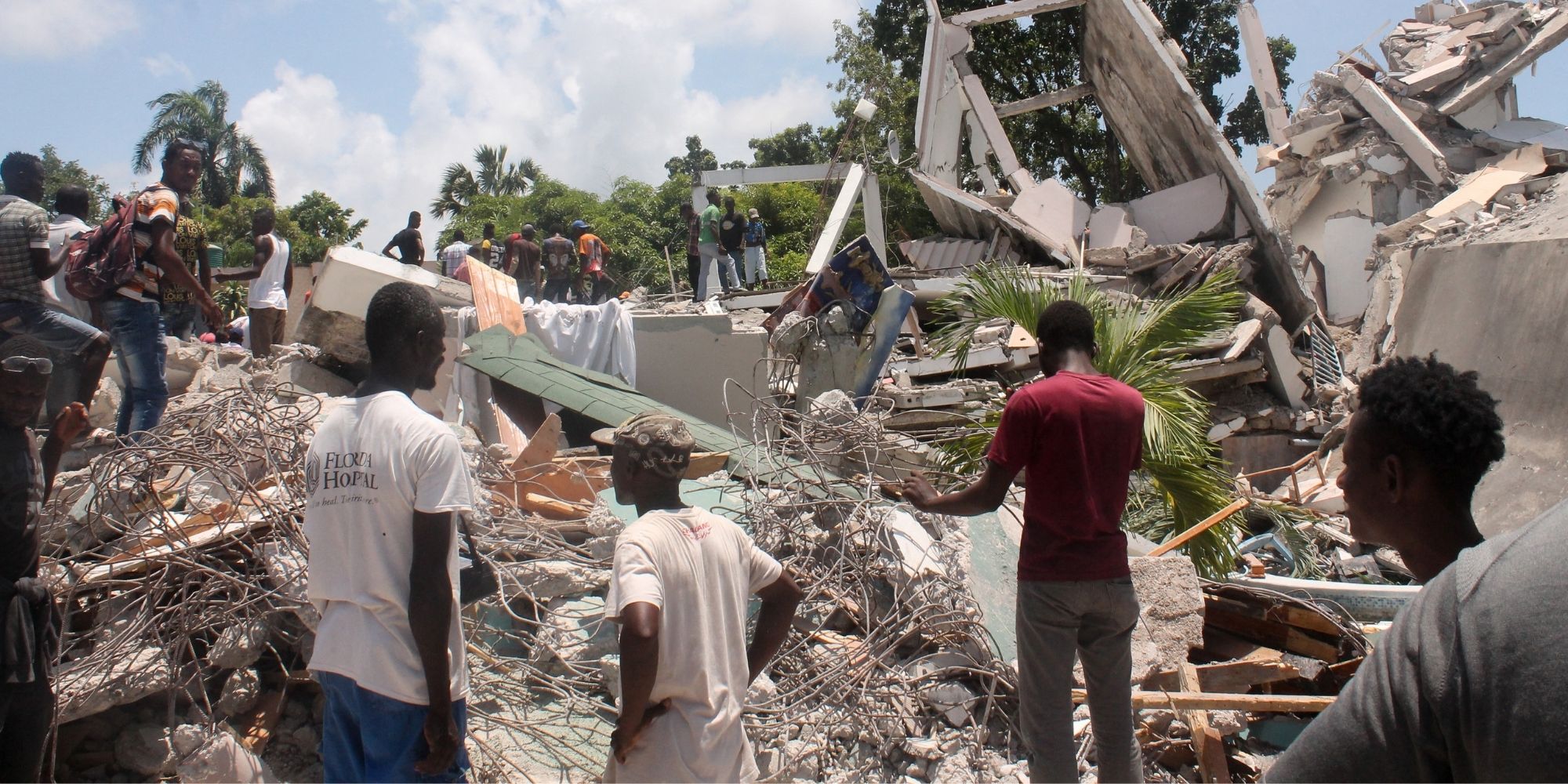More than 1,300 dead and 5,700 injured were counted in Haiti after the passage of a violent earthquake of magnitude 7.2.
The helpers are busy with limited means to save the victims while the United States, the Dominican Republic, Mexico, or Ecuador have sent reinforcements.
The powerful earthquake that hit Haiti hard on Saturday left nearly 1,300 dead and 5,700 injured, leaving thousands of people homeless in the southwest of the country or in search of loved ones missing or stranded under the rubble.
While undergoing aftershocks of the magnitude 7.2 earthquake, residents and relief workers were busy Sunday with limited means to find survivors.
A number of heavy machinery, trucks and backhoe loaders were busy moving concrete slabs from collapsed buildings in the city of Les Cayes near the epicenter of the earthquake, some 160 km from the Haitian capital Port-au-Prince, noted AFP on site.
"Come save me, I'm under the concrete!"
The earthquake struck southwest Haiti at 8:30 a.m. on Saturday. Sunday evening, the assessment drawn up by the Haitian civil protection stood at precisely 1,297 dead. Almost 30,000 houses have been destroyed or damaged. Of the two-storey building of Marcel François in Les Cayes, only ruins remain. "It's a grace from God and also thanks to my phone that I am alive because I was able to tell people outside where I was located," the 30-year-old man told AFP. His little brother Job, helped by neighbors, spent more than three hours pulling him out of the rubble, with nothing but the strength of their arms. "I was on the bus to go to work when the earthquake hit. I managed to reach Marcel on the phone but he said 'come and save me, I'm under the concrete'",testifies Job François.
Injured in the head, once pulled from the concrete blocks and broken furniture, Marcel François was immediately transported to the hospital, in a state of shock because without news of his 10 month old daughter, still trapped in the ruins.
"I thought my child was dead. I was crying when I arrived at the hospital, I was resigned," says the thirty-something with emotion.
Thanks to the joint action of the inhabitants and her uncle, little Ruth Marlee Alliyah François was taken out of the house, four hours after the earthquake.
International aid to treat the wounded
Relief efforts to help victims, however, could be hampered as Tropical Depression approaches Grace, with a risk of torrential rains and rapid flooding, according to the US National Weather Service. It is expected overnight from Monday to Tuesday, and the country has been placed in heightened vigilance. Staff and drugs have already been sent by the Ministry of Health to the southwestern peninsula, but emergency logistics are also jeopardized by the insecurity that has plagued Haiti for months.
Over a little over two kilometers, the only road connecting the capital to the southern half of the country crosses the poor neighborhood of Martissant under the control of armed gangs since early June, preventing free movement.
The few hospitals in the affected regions are struggling to provide emergency care.
Installed on benches, curled up on chairs or lying on the floor on sheets, the injured were waiting Sunday to be taken care of at the hospital in the coastal town of Cayes, AFP noted.
Many countries, including the United States, the Dominican Republic, Mexico, and Ecuador have already offered their assistance with the dispatch of personnel, emergency rations and medical equipment.
The memory of 2010 in everyone's mind
Prime Minister Ariel Henry, who declared a state of emergency for one month in the four departments affected by the disaster, thanked the international community on Sunday. "We want to give a more appropriate response than in 2010 after the earthquake. All aid from outside must be coordinated by the Directorate of Civil Protection," demanded the head of government, while calling on his fellow citizens to "national unity". "Let's forget our quarrels," pleaded Ariel Henry, who heads the poorest country in the Americas, in the midst of a crisis since the assassination of President Jovenel Moïse on July 7.
The earthquake of January 12, 2010 which devastated the capital and several provincial towns is still in our memories. More than 200,000 people were killed and more than 300,000 others were injured in the disaster while more than a million and a half Haitians were left homeless. The country's efforts to recover from this disaster had been hampered by strong political instability. Eleven years later, the island is still in the grip of an acute socio-political crisis, its president Jovenel Moïse having been assassinated last month.

